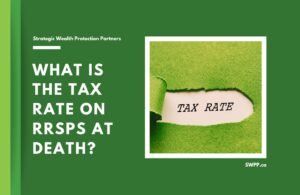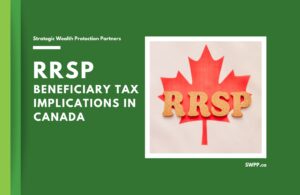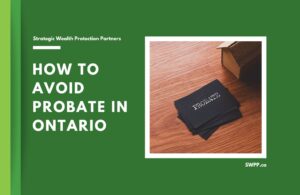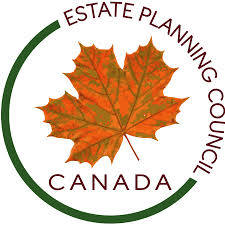Written by Ron Cooke, President & Founder of Strategic Wealth Protection Partners in Ontario, CEA®, Member of the Estate Planning Council Canada
What Is Death Tax in Canada?
Many people worry about a “death tax” when planning their estate.
The good news? Canada does not have an official inheritance tax like the U.S. However, this doesn’t mean your estate is tax-free. Upon death, your assets may be subject to capital gains tax, probate fees, and other estate-related costs.
Understanding how these taxes work can help you protect more of your wealth for your loved ones.
Summary of Key Points
- Strategic estate planning can minimize or defer taxes.
- Life insurance can provide tax-free funds to cover estate costs.
- Trusts and gifting strategies can help protect assets.
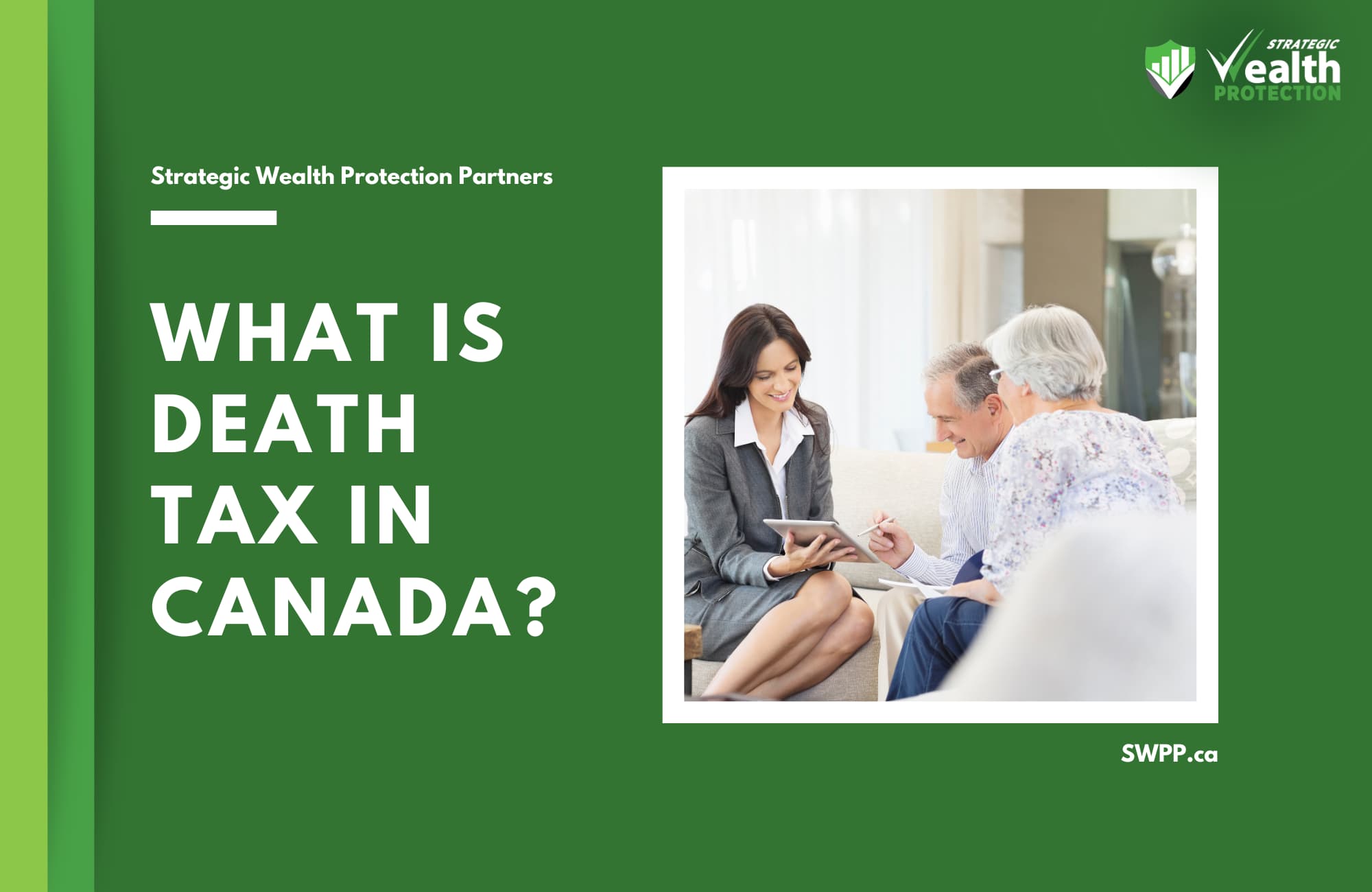
Does Canada Have a Death Tax?
No, Canada does not have a death tax or inheritance tax. Your heirs do not have to pay tax just for inheriting your assets.
However, when you pass away, the government considers you to have sold all of your assets at fair market value. This is known as deemed disposition, and it can trigger capital gains tax on investments, properties, and registered accounts.
In addition, probate fees (known as the Estate Administration Tax in Ontario) may apply to your estate, reducing the amount your beneficiaries receive.
With proper estate planning, you can minimize taxes and probate fees, ensuring your wealth stays with your family—not the government.

How Will My Assets Be Taxed After I Die?
When you pass away, your estate is responsible for any capital gains tax, probate fees, and outstanding income taxes before your assets are distributed to your heirs.
- Capital Gains Tax: If your assets (property, stocks, investments) have increased in value, 50% of the gain is taxable and added to your estate’s final tax return.
- Probate Fees: In Ontario, the Estate Administration Tax applies to the total value of your estate (but some assets, like life insurance with a named beneficiary, can avoid probate).
- RRSPs/RRIFs: These are fully taxable upon death unless transferred to a spouse or dependent child.
With smart tax and estate planning, you can reduce or defer these costs to maximize what your family inherits.
Is There a Death Tax on Property in Canada?
While Canada does not have a formal death tax, your estate may owe capital gains tax on real estate upon your passing.
- Primary Residence: If your home was your principal residence, it is exempt from capital gains tax under the Principal Residence Exemption (PRE).
- Cottages, Rentals & Second Properties: Any secondary residence (cottage, rental property, investment real estate) will be taxed on its increased value at the time of death.
- Probate Fees: In Ontario, properties passing through an estate are subject to Estate Administration Tax unless held in joint ownership or a trust.
Careful estate planning can reduce probate fees and defer capital gains tax, helping keep more wealth in your family.
Is There a Death Tax on RRSPs and RRIFs in Canada?
Yes—RRSPs and RRIFs are fully taxable upon death unless transferred to a qualifying beneficiary.
When you pass away, the balance of your RRSP or RRIF is treated as income and included in your final tax return. This can create a significant tax bill, especially if you have a large account balance.
However, there are ways to reduce or defer this tax:
- Spousal Transfer: If you name your spouse or common-law partner as the beneficiary, the account can be transferred tax-free.
- Dependent Child Transfer: If you have a dependent child or grandchild, special rules may allow a tax-deferred transfer.
- Charitable Giving: Donating RRSPs/RRIFs to charity can offset the tax liability.
Without planning, up to 50% of your RRSPs or RRIFs could be lost to taxes, so structuring these accounts properly is crucial.
How Does Deemed Disposition Affect Inheritance Taxes in Canada?
Deemed disposition is a tax rule that can create an unexpected tax bill when you pass away.
In Canada, when you die, the CRA treats all your capital assets (real estate, investments, stocks, RRSPs) as if they were sold at fair market value on your date of death.
This can result in:
- Capital gains tax on investment growth
- Taxation of RRSPs and RRIFs as income
- Potentially large estate tax liabilities
The exception?
If your assets pass to your spouse, deemed disposition is deferred until their passing. Planning with trusts, gifting strategies, and life insurance can reduce or eliminate these tax burdens.
What Is the Best Way to Reduce Taxes and Fees on Your Estate?
There are several strategies to reduce or eliminate estate taxes and probate fees in Canada:
- Use the Principal Residence Exemption: Ensure your home qualifies to avoid capital gains tax.
- Name Beneficiaries on RRSPs, RRIFs, and Life Insurance: This keeps them out of your estate and avoids probate.
- Transfer Assets Gradually: Gifting assets over time can spread out capital gains tax instead of triggering a large bill at death.
- Use a Trust: Holding property or investments in a trust can help avoid probate and control asset distribution.
- Buy Life Insurance: A tax-free life insurance payout can cover capital gains tax and probate fees, protecting your heirs.
Proper estate planning ensures your family inherits more and pays less in taxes.
Can Life Insurance Be Used to Pay Capital Gains Tax Upon Death?
Yes, life insurance is one of the best tools to cover capital gains tax and estate costs.
Since capital gains tax can take 25-50% of your estate’s value, a permanent life insurance policy can provide a tax-free payout to cover these costs, ensuring your heirs don’t have to sell assets just to pay the tax bill.
Life insurance can help pay off capital gains tax on cottages, rental properties, or investments. It can also keep a family business or real estate portfolio intact. And it can equalize inheritances between children who inherit different types of assets
For families with high-value assets, life insurance is a cost-effective way to protect wealth for the next generation.
Final Thoughts
While Canada does not have a direct death tax, your estate may face capital gains tax, probate fees, and income tax on registered accounts.
Without a proper plan, these costs can take a significant portion of your wealth before it reaches your family. Every estate is different, and a personalized plan ensures your loved ones inherit more and deal with fewer tax burdens.
Want to make sure your estate is protected? Let’s talk—a little planning today can save your family thousands (or even millions) tomorrow.
Discover How to Minimize Taxes and Secure Your Legacy
Did you know that without a solid estate plan, taxes and fees in Ontario could claim a significant portion of your wealth?
If you’ve worked hard to build your business, investments, and properties, protecting your legacy for your loved ones is critical. At Strategic Wealth Protection Partners, we specialize in helping high-net-worth individuals in Ontario secure their financial futures.
Our Living Estate Plan is designed to:
- Reduce estate taxes and probate fees.
- Simplify wealth transfer to your loved ones.
- Reflect your values and priorities in every detail.
Your Legacy Matters
With our personalized guidance, we’ll help you navigate options like Living Trusts to protect your assets and ensure your family’s peace of mind. Contact us today to book your Living Estate Plan Consultation and take the first step toward a secure future.
Schedule a Living Estate Plan Consultation
Planning your legacy is about more than numbers—it’s about ensuring your family remembers you and your values are honoured for many years to come.
Estate planning and trusts can feel overwhelming, especially if it’s your first time. That’s why we’re here.
With our simple, 5-Step Living Estate Plan, we make the process easy, helping you create a comprehensive estate plan or trust that protects your assets from taxes and probate fees while preserving your legacy. Tools like The Final Word Journal capture your story, wishes, and essential details like accounts and end-of-life plans, ensuring your family has clarity and comfort.
Take the first step today—schedule a consultation call and give your family the ultimate gift: peace of mind and the assurance they were always your priority.
Read More
If you’re starting your estate planning process, you may find these articles helpful:
- Can I Gift a House to My Son or Daughter Without Paying Taxes in Canada?
- Is It Better to Gift or Inherit Property in Canada?
- How to Avoid Inheritance Tax on a House in Canada
- How to Avoid Estate Tax in Canada
- How Much Is an Estate Taxed in Canada?
About the Author
RON COOKE, PRESIDENT & FOUNDER OF STRATEGIC WEALTH PROTECTION PARTNERS

With over 30 years in financial services, I’ve seen the challenges families face when a loved one passes—lost assets, unnecessary taxes, and emotional stress. That’s why I created the Living Estate Plan, a comprehensive process to protect assets, eliminate estate and probate fees, and create legacies that are remembered for many years to come.
This plan ensures your family receives not just your wealth, but a meaningful reminder of your care and love. Tools like The Final Word Journal capture your story, wishes, and essential details, offering clarity and comfort during difficult times.
Your final gift should be more than money—it should be peace of mind, cherished memories, and an organized estate.
Schedule a Call
Schedule a 30-minute consultation call with Strategic Wealth Protection Partners.
Click HERE to schedule a consultation.


